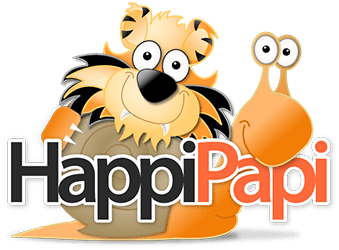
How To Craft Your App Keywords
We believe keywords is the most important pieces of meta data for your app. We think so because keywords help your app to be found when customers search for apps on the App stores. Yes, a properly localized app description and enticing screen shots are very important in converting sales but before that can happen, people must find your app and keywords help facilitate that.
At Happi Papi we work under the assumption that professionally crafted and researched keywords will increase your daily revenue by 10%. For most indie app developers that means an extra $5-100 a day. Compared to the work you have to put in in order to select effective keywords, the exercise has a pretty good ROI. You should be able to find, research and select great keywords for about 5-6 apps in a day if you have the right tools for the job.
Choose Your Keywords
When we choose which keywords should end up on an app’s short list we use a web based service called Sensor Tower. This service is great because you can pit your own app against your competition and then compare your keywords to that of your competitors. If you make sure you choose category leading apps to compare your app to, you are almost certain to find the most effective keywords out there for your category. Sensor Tower makes this especially easy as it shows you an app’s category ranking right next to the very cool “Spy on this app” button.

Happi Spells using Sensor Tower to spy on L'escapadou's Word Wizard
At this point, a word of caution seem appropriate: Neither Sensor Tower, nor any other keyword tweaking service knows for sure what keywords an app actually use as this data is not revealed by any App store. The displayed keywords is a qualified guess based on the service’s own algorithm. You can get a good sense of how accurate a service is by comparing the keywords it displays for your app with the ones you actually use. In our opinion Sensor Tower is one of the best services for accurately predicting what keywords an app uses.
Research Your Keywords
Once you have your short list of keywords it is time to select the most effective ones. Remember, you only have 100 characters of keywords to play with. The best way of selecting effective keywords that we have come up with is to input your entire shortlist into Google Keyword Tools. Doing so will give you two important facts; how often a word is searched for and how much competition there is for that keyword. Competition is measured by how many companies are buying this particular adword from Google.
Optimally, you want to select keywords from your short list that have a high search frequency (they are searched for often) but low competition (not a lot of instances of this adword have been sold).
At this point you should have:
- Selected appropriate keywords based on your app’s content
- Compared those keywords with highly ranked competitors in your category
- Chosen the best keywords and put them on a short list
- Researched your short list using Google Keyword Tools
- Chosen the optimum 100 characters of keywords based on search frequency and competition.
If you follow this simple list you will end up with powerful keywords based on:
- Your own best judgement
- Your most successful competitors’s best judgement as displayed by Sensor Tower
- The most potent of these keywords based on Google Adwords algorithm as displayed by using Google Keyword Tools.
Localize Your Keywords
The last piece of the puzzle is to localize these keywords for your major markets. For this you should NOT use Google (Translate). Doing so will at best be out of touch with local language expressions and at worst be completely wrong or even offensive. Instead, use an online translation service like OneHourTranslation.com. By doing so you give yourself the option to put your keywords in the proper context for one of the native speakers who will translate them.
We cannot enough stress the importance of using a translation service with human native speakers on staff. For example, at Happi Papi we have learned that our apps are used by a lot of special needs students. Naturally, we want to use “special” and “needs” as keywords to better position us in this niche. However, the literal translation of special needs to any of the Scandinavian languages (which are some of Happi Papi’s most important markets) would not be accurate as that is not an expression that is used there.
Even if you add context to the expression “special needs” and came up with the word that is actually used locally in these situations – “handicap” – you would be wrong. The word handicap has a negative connotation in Scandinavia and would never be used as a search term by parents with special needs kids. Only a human native speaker would ever know the distinction which in this case could very well leave your app dead in the water if you take the cheap route.








